The internet is an incredible tool but also full of potential pitfalls. It can be a breeding ground for scammers, fraudsters, and thieves, and you must know the red flags to watch out for to protect yourself. Here are things to avoid when using the internet.
Being so trusting with the posts and videos
People send messages as spam every day. It is so common that we tend to ignore these messages without giving them a second thought. But these messages, and scams that follow them, can be harmful to our digital security. Sometimes these messages are easy to spot. They are generally sent from unfamiliar email addresses and contain grammatical mistakes, false promises, or other red flags. Other times, these messages slip by unnoticed. These messages are more clever, and they can be hard to detect.
The mass media has convinced you that watching a YouTube video with a cat riding a unicorn performing an aerial flip over a waterfall will give you the life you want. But, the truth is that most people who post videos on YouTube don’t make a living off it. The same holds for flashy websites. Anyone can put up a website, but how long will it stay up? How many visitors will you end up with? And is there even anything of value there? The truth is, you can be gullible and post a video or website that gets popular quickly. But when it comes down to it, it’s nearly impossible to make a living out of something when you have a following so minuscule.
Skipping the two-factor authentication
Two-factor authentication (also known as two-step verification) is increasingly standard practice for online services. It’s used to protect accounts from hackers that manage to steal your passwords. Two-factor authentication adds a layer of security to your account, requiring you to provide additional verification information when you sign in. This extra shield can prevent hackers from accessing your account wherever they have your password.
Phishing scams are one of the most widely used methods for stealing your confidential information and identity. This scam works by tricking you into disclosing your account username, password, or other valuable information. But one huge way to avoid becoming a victim of phishing scams is by not setting up two-factor authentication.
Syncing your social media accounts
Syncing your social media accounts is a great way to share content with your friends and followers. However, syncing all your social media accounts increases the chance of a hacker finding your personal information, such as passwords and credit card information. It’s a good idea to disable syncing your social media accounts using a public computer.
Cloud storage is a convenient and time-saving way to keep files organized. However, do you know that you can upload your personal information to the internet and share it anywhere? This can leave you vulnerable to identity theft. To avoid this, minimize the risk of sharing your personal information online.
Sharing too much information
While the internet makes our lives easier in some ways, it can also be dangerous. As people around the globe get online, they are encouraged to share more and more of their identities, including their home address, phone number, and email address. While sharing these bits of information may seem harmless, they can lead to identity theft when bad actors use that information to steal your identity.
Sadly, many people forget that the entire world can see what you post online. Don’t share anything online that you wouldn’t want to see on the front page of a newspaper. It is now easier on social media to see public posts from anyone, including public figures.
The internet has made our lives easier in many ways, and there are some positive and some not-so-positive consequences. Take social media, for instance. Some aspects are positive about social media, such as how it connects us to everyone in our lives, no matter where we are in the world. It also allows people to share their experiences when they’re traveling and to share their opinions with others who feel the same. And while there is great information on social media, there are also many negative aspects.
It’s a fact that people are becoming more impulsive as they spend time online. As technology becomes more embedded into society, the internet can influence how people behave in their daily lives. With more people spending more and more time online, the internet has become a go-to source for people looking for answers to all kinds of questions. And, with an increase in Internet usage comes the amount of personal data we share with the world.

